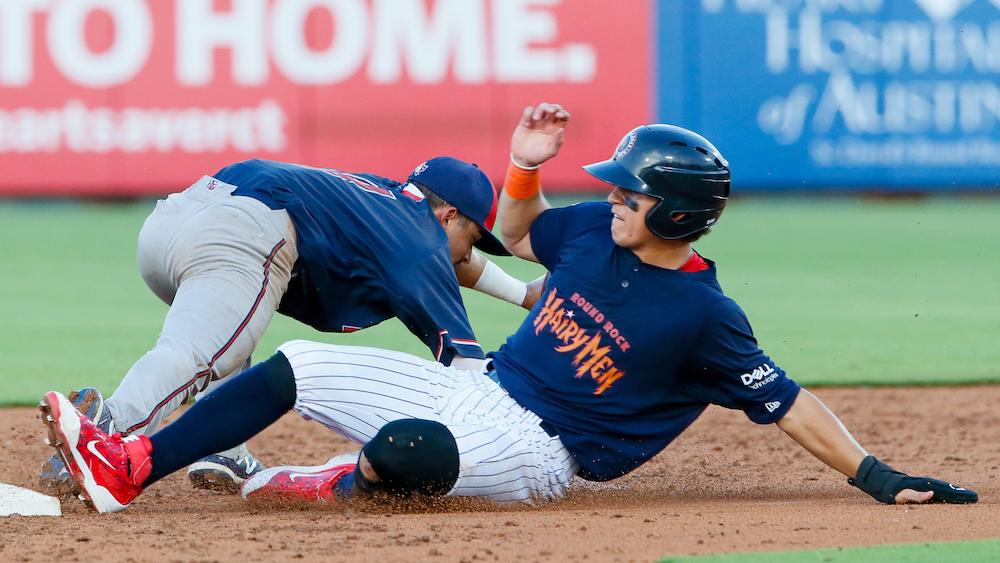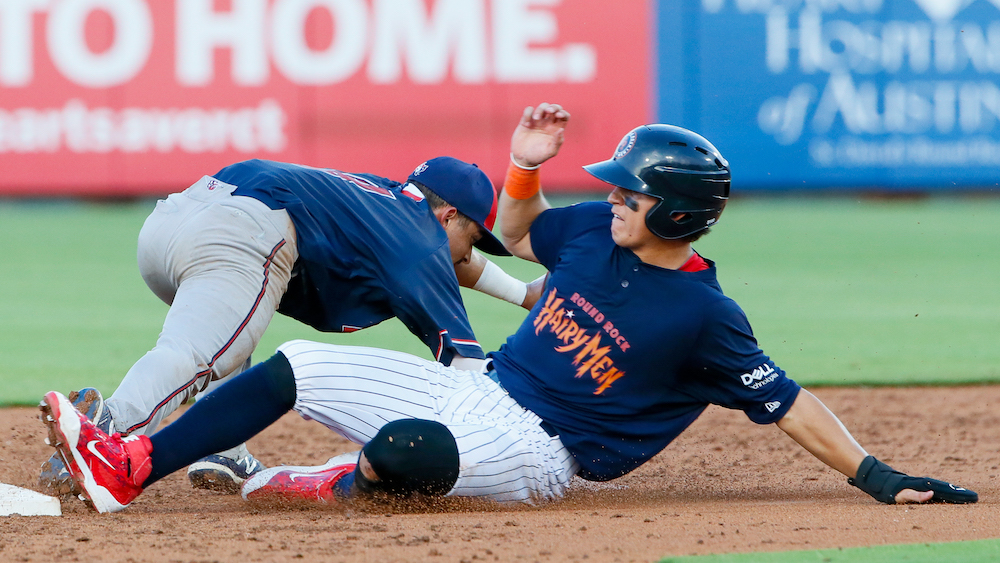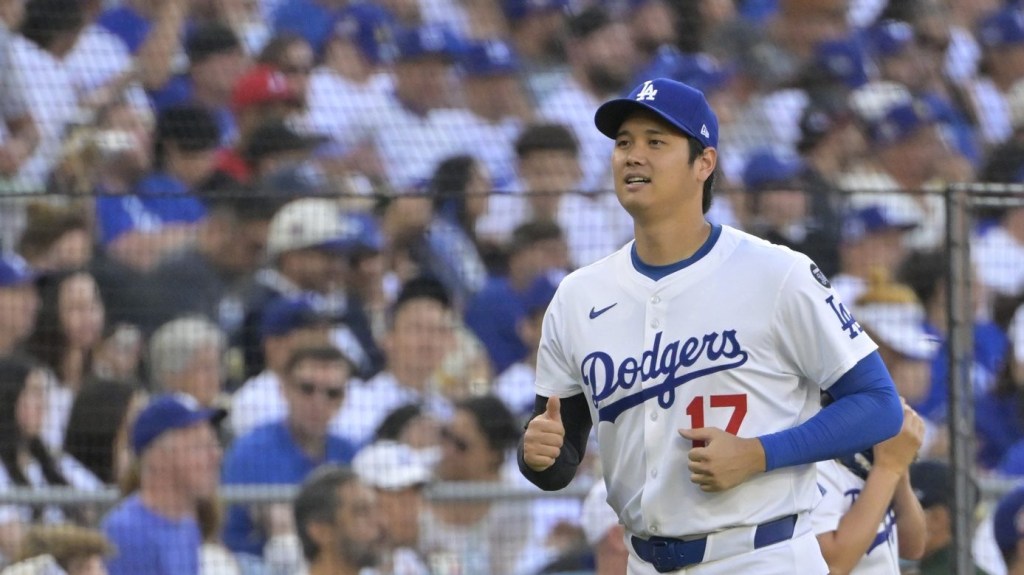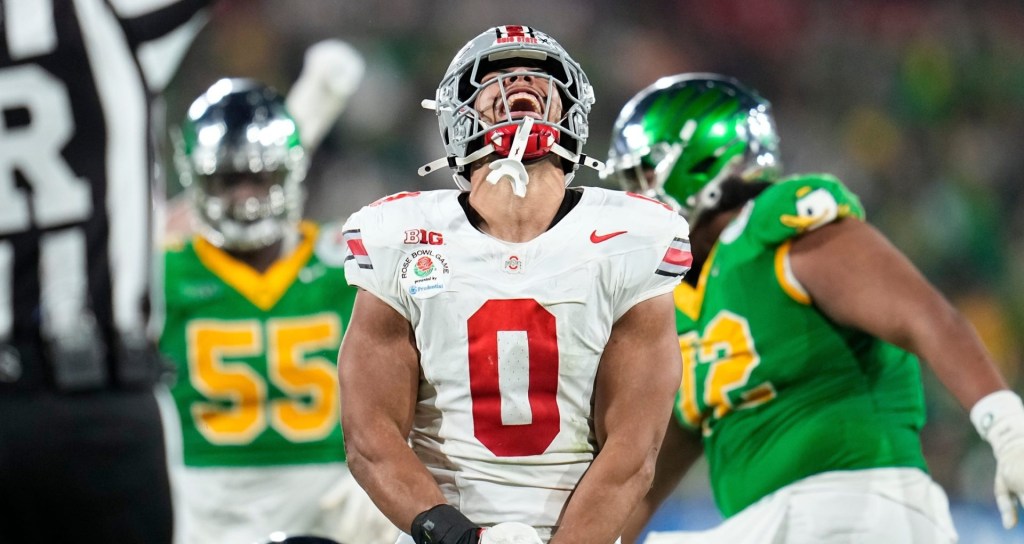
Recognizing there was likely going to be no Minor League Baseball season in 2020, several teams in Texas and Oklahoma joined the Texas Collegiate League.
“You have to be creative in times like these,” said Tony Ensor, general manager of the Amarillo Sod Poodles, the Double-A affiliate of the San Diego Padres. “This is a devastating time for not only baseball around the country but we’re basically an association of small businesses. I started reading tea leaves and there wasn’t going to be much opportunity for Minor League Baseball. So I sunk my teeth into this and pulled it together.”
Ensor was joined by San Antonio Missions President Burl Yarbrough in the efforts to start working with a summer collegiate league. They had heard the Cape Cod League had shut down for the year and asked organizers to move it to Texas, but that option quickly fell through.
Instead, they found the Texas Collegiate League, which was planning a season and granted one-year expansion franchises for Amarillo and San Antonio, as well as the Frisco RoughRiders, Round Rock Express and Tulsa Drillers. With one existing TCL team unable to field a team, Amarillo is fielding two teams to make it an even 10-team league.
The wood bat summer league for college players kicked off June 30, the same day MiLB officially canceled its season. So while five cities in the Texas League and Pacific Coast League won’t have minor league baseball, the communities still get to go to the ballpark. Games are available through TCL-TV, at $7.50 per game, $89 for a team package or the entire league for $129.
Together the teams put together their season plans, cramming “three to four months of work into three weeks, Ensor said.
The rosters are made up of collegiate players, largely local to the area or going to school at nearby universities.
“There’s a major need for college kids to get reps in the summer,” Frisco President and General Manager Andy Milovich said. “It’s an opportunity for us to fill a void with great college baseball and provides us value by generating revenue and keeping people employed.”
READ MORE: Independent American Association Kicks Off Professional Baseball
It was nearly three months ago when teams started to realize there likely wouldn’t be a season based on the logistics of the minor leagues and the varying health and safety protocols across the U.S., according to J.J. Gottsch, chief operating officer of Ryan Sanders Sports and Entertainment. which owns the Round Rock Express. With that realization, Gottsch said it was important to try to use ballparks in different ways, but it always came back to “the best use for a baseball stadium is baseball.”
“We’re only replacing 70 home games with 15; easy math is that it’s not possible to replace everything,” Gottsch said. “It’s a collegiate summer league, we don’t know the expectations, but we think it’ll be good. The reality is, if we get some new sales and some marketing, that’s great.”
A main goal was to stay in front of partners and season ticket holders and keep 2020 commitments in 2020 and extend those relationships into 2021.
Yarbrough said the hope is to recoup 25% of what a normal season might bring in. The team will go by the Missions’ Copa de la Diversión nickname Flying Chanclas, which has been a significant merchandise sales driver for the team.
“It helps our business, not only this year but for next year,” Yarbrough said. “We know we’re not doing the numbers of AAA but keeps our brand out there, provides baseball for our community and the college kids who had their seasons ruined.”
The Round Rock team is going by the Hairy Men – a nod to a local urban legend that works out well with the quarantine beard trend – to help avoid market confusion. The Hairy Men moniker was set to be a weekend brand change for the Express this season, and Gottsch is happy the merchandise sales are “through the roof.”
READ MORE: Nolan Ryan Takes the Long and Diverse View for Business Empire Growth
Ensor said stadiums will be mostly under 50% capacity to comply with social distancing guidelines. The Amarillo ballpark will be 41% of normal capacity, with 1,650 in the grandstand, down from 4,400. The teams all generally said they’re taking extra precautions for safety and sanitation beyond the local guidelines as they hope to instill some sense of normalcy for their fans.
“We’re excited to be playing baseball again; some events, in order to put a dent in the damage this has done financially you need some sort of long-term strategy,” Ensor said. “We’ve tried the one-off events, but those aren’t something that can sustain staff.
“If we didn’t create this opportunity for the teams involved, you’re looking at 18 months without revenue. I don’t have to be a Wharton School of Business graduate to know that’s not a good business model,” he added.
Other MiLB teams are popping up similar solutions, such as the Lansing Lugnuts launching the Lemonade League, a self-contained, 20-game college league at the team’s stadium drawing from Michigan universities and colleges.
For now, the expectation is the Texas Collegiate League will come and go as Minor League Baseball returns to the Texas communities next year. But with plenty of unknowns existing because of the pandemic and ongoing discussions between MLB and MiLB, the teams won’t be taking anything for granted.
“I’ve told our folks don’t jump to conclusions,” Gottsch said. “What COVID taught us is you can’t just assume and you have to be prepared.”
















